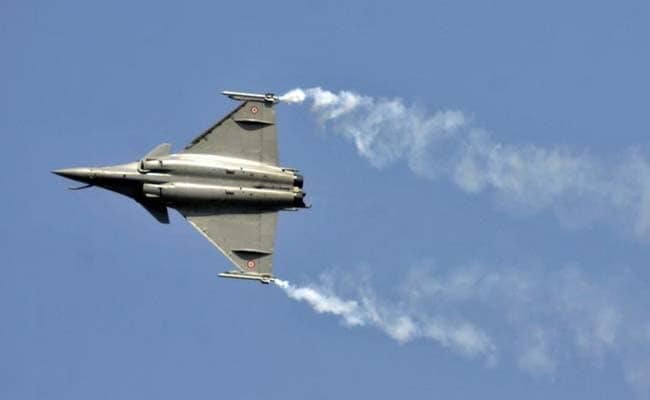
Prime Minister Narendra Modi will tonight meet French President Francois Hollande. Both leaders are reported to be keen to seal a deal for India to buy Rafale fighter jets from France.
Here are 10 big developments in this story:
The negotiations are now over 63 Rafale fighter jets made in France for 7.65 billion dollars - both sides hope to announce a breakthrough during PM Modi's two-day visit, French newspaper Le Monde reported.
For three years, the Rafale deal has been mired in extensive negotiations. The original proposal for 126 fighter jets is worth at least 12 million dollars.
To speed up the purchase and give the air force the jets that it desperately needs to upgrade its ageing fleet, India is looking at buying about 60 ready-to-fly planes, said sources.
Indian sources in Paris said they will push to drive a hard bargain. India will also not give up its Make In India push to promote manufacturing at home and to build a domestic military-industrial base, said sources.
"The question of the Rafales is still in discussion and we should be able to make progress on mutually acceptable bases," Prime Minister Narendra Modi told a French newspaper ahead his arrival.
The original plan was for India to buy 18 off-the-shelf jets from France's Dassault Aviation, with nearly 100 others being assembled at home by the state-run Hindustan Aeronautics Limited or HAL in Bengaluru.
But Dassault has been reluctant to provide guarantees for the aircraft that are produced in India.
The French firm has also calculated a rise in hours required to make the jets in Bengaluru, which would mean a major impact on the price of the planes.
India is also aware that making the bulk of the jets in India will cause massive delays since the state-run HAL will need time to implement the new technology and meet the exacting standards of the French before it is delivered to the Indian Air Force.
The Rafale was chosen in 2012 over rival offers from the United States, Europe and Russia.

